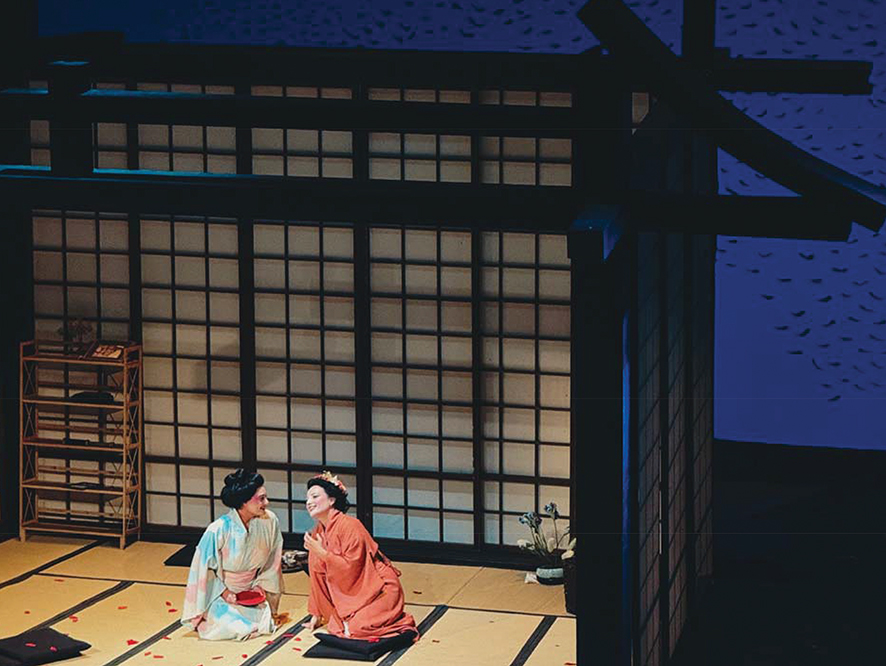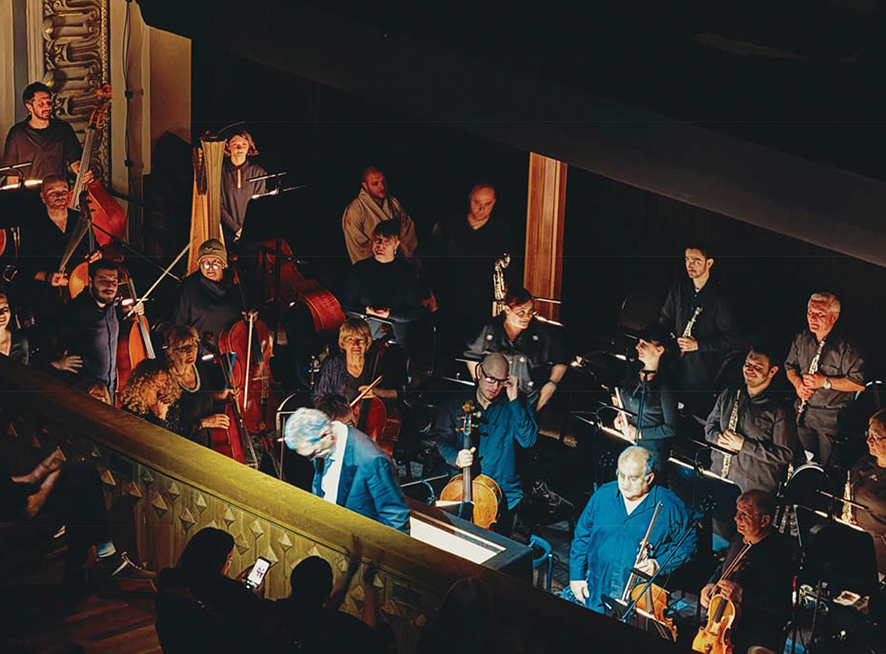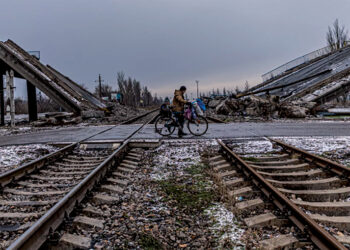Last weekend in Tbilisi, the State Opera and Ballet Theater reopened its stage to a production that has haunted the global repertoire for more than a century: Giacomo Puccini’s Madama Butterfly. Directed by Keita Asari and conducted by Filippo Conti, this revival — a co-production with Teatro alla Scala — arrived in Georgia like an echo of two empires at once: the European imagination that created the opera and the local post-Soviet world still negotiating its own image within it.
Performed on October 10–12, the production embodied both the seductive familiarity and the critical discomfort of Puccini’s tragedy. The score, written in 1904, at the height of Italy’s colonial anxiety, remains a study in listening across power lines. That the opera re-emerges in Tbilisi, a city long situated between empires, gives the work a resonance that exceeds nostalgia. Here, Butterfly becomes less a story of Japan and America than a meditation on spectatorship itself — on the gaze that constructs “the Other” through beauty.
Asari’s staging, designed originally for La Scala and revived with precision by the Georgian company, presents a visual economy that mirrors Puccini’s musical transparency. The set, minimalist yet luminous, floats between realism and abstraction: paper walls, open frames, and light so soft it seems to breathe. Lighting designer Stefano Gorreri and costume designer Hanae Mori constructed a world of filtered textures — silk and shoji screens, bodies half-visible in shadow. The aesthetic is not orientalist excess but restraint; it renders the familiar story uncanny, as if viewed through memory rather than history.

From the opening measures of the overture, Filippo Conti shaped the orchestra into a surface of transparency. The Tbilisi Opera Orchestra responded with a sound that shimmered rather than sang — strings articulated like light, winds voiced in small gestures, percussion almost tactile. Puccini’s harmonic world, so often caricatured as cinematic, here emerged as architectural. Conti’s pacing was slow, deliberate; each harmonic suspension felt like a held breath.
The entrance of Cio-Cio-San, sung by Anna Imedashvili, revealed not a naïve child but a figure of startling interiority. Her voice, cool and silvery, lacked the traditional Puccinian warmth — and that absence became its power. She approached the role not as a victim or icon, but as a consciousness negotiating her own theatricality. In “Ancora un passo or via,” her phrasing felt self-aware, almost hesitant, as if she recognized the fragile fiction she was inhabiting. The orchestra under Conti reinforced this duality — strings in muted tremolo, harp arpeggios dissolving like paper.
In Madama Butterfly, music functions as ideology. Puccini’s Japanese motifs — pentatonic figures, parallel fourths, delicate instrumental colors — operate less as ethnographic signs than as sonic masks. Beneath them lies the harmonic language of European desire. Conti’s interpretation brought that awareness into focus. The “Star-Spangled Banner” motive that accompanies Pinkerton, played by Armaz Darashvili with lyrical bravado, sounded less heroic than absurdly foreign, a brass intrusion into a fragile world. Darashvili’s tenor, bright and assertive, avoided caricature — his Pinkerton was not a villain but a symptom. Against him, Imedashvili’s Cio-Cio-San maintained an interior distance: her voice refused submission even in lyric surrender.
In the love duet that concludes Act I, the contrast between European romantic harmony and stylized pentatonic melody becomes a theater of empire. Conti balanced it with precision: the orchestra’s warmth undercut by sudden pauses, as if questioning the sincerity of its own lyricism. The final chord, suspended between E major and its shadow, lingered in the air like a moral residue.

Act II — the long scene of waiting — remains one of the most psychologically precise constructions in opera. Under Asari’s direction, the stage turned into a space of durational time. The walls shifted imperceptibly, light thinned, and silence acquired weight. Irina Sherazadishvili’s Suzuki offered a grounded counterpoint to Imedashvili’s tension: her mezzo-soprano dark, supple, maternal. The chorus, prepared by Avtandil Chkhenkeli, provided offstage color — distant and hollow, as if coming from another world.
Here, the Tbilisi orchestra reached its expressive peak. The strings breathed collectively; winds hovered in translucent textures. Conti’s tempi stretched the scene to its limit, letting the tension of waiting become the drama itself. The “Humming Chorus” — often treated as a sentimental interlude — here felt like the sound of suspension. The chorus’s vowels, pure and vibratoless, created an almost minimalist texture that evoked the ambient art of later decades more than Romantic opera. The effect was hypnotic: time ceased, leaving only resonance.
To revisit Madama Butterfly in 2025 is to confront a moral question: can we still perform this opera without reproducing its imperial gaze? Asari’s production does not answer; it listens. The staging frames Cio-Cio-San’s death not as spectacle but as withdrawal — an erasure of image. Puccini’s tragedy survives precisely because it exposes the machinery of desire. Its aestheticization of suffering, its transformation of colonial encounter into melody, continues to unsettle because it mirrors the structures that sustain art itself.
Madama Butterfly in Tbilisi forces one to reconsider what it means to inherit the global canon. For Georgia — a country central to the history of cultural mediation — to stage Puccini today is to test how a local voice can reframe an imperial narrative.
Review by Ivan Nechaev














